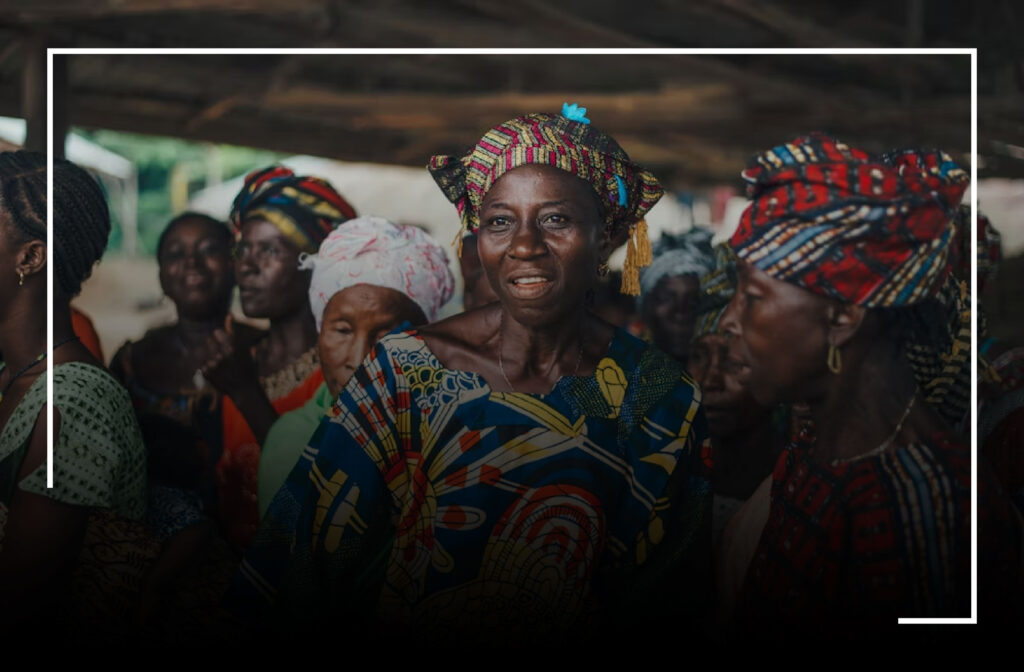Why Women’s Economic Inclusion Matters
 The question of whether we should create economic opportunities for women is not just a moral debate it is an economic necessity. When women have equitable access to education, healthcare, and financial resources, societies thrive, economies grow, and national prosperity becomes more attainable. Yet, deeply rooted cultural, structural, and financial inequalities continue to limit women’s full potential. If we are truly committed to economic growth and social progress, accelerating access for women must be a top priority.
The question of whether we should create economic opportunities for women is not just a moral debate it is an economic necessity. When women have equitable access to education, healthcare, and financial resources, societies thrive, economies grow, and national prosperity becomes more attainable. Yet, deeply rooted cultural, structural, and financial inequalities continue to limit women’s full potential. If we are truly committed to economic growth and social progress, accelerating access for women must be a top priority.
The Cost of Exclusion: A National Economic Loss
Women make up nearly 50% of Nigeria’s population, yet they remain significantly underrepresented in economic decision-making and wealth creation. Particularly in entrepreneurship, women own 41% of micro-businesses, with approximately 23 million female entrepreneurs driving economic activity in this sector. Nigeria ranks among the top countries globally for female entrepreneurship. However, despite their strong presence in small businesses, women face structural barriers that limit their advancement into leadership roles within the formal economy.
As businesses scale, female representation declines at senior leadership and board levels. Women own only 20% of enterprises in the formal sector, and their participation in corporate governance remains low, with just 12% of board seats occupied by women. These disparities highlight the urgent need for policies that enhance women’s access to leadership opportunities, promote financial inclusion, and support the transition of women-led businesses into the formal sector.
This exclusion is not just a personal struggle it is a national economic loss.
- Nigeria ranks 125th out of 146 on the Global Gender Gap Index: closing gender gaps in economic participation could boost Nigeria’s GDP by up to 30%, according to the International Monetary Fund (IMF).
- Women entrepreneurs face funding barriers over 80% of women-led businesses rely on personal savings or informal lending due to limited access to formal credit.
- Limited labour force participation: female labour force participation is 52.2%, compared to 65.9% for men, and has been declining since 1990.
- Gender wage gap women earn 45% less than men in similar roles.
Nations that prioritize gender equality experience higher income per capita, stronger financial markets, and more stable economies. Excluding women from economic opportunities is a direct hindrance to national development.
The Trust Factor: Women’s Economic Empowerment Strengthens Society
Women play a central role in shaping economies and societies. Studies show that when women are economically empowered, they reinvest 90% of their income into their families and communities, compared to 30–40% by men. This reinvestment leads to improved education, healthcare, and social stability.
- Companies with women executives are 30% more likely to outperform their competitors.
- Nations with higher female participation in politics and business experience lower corruption levels and better governance outcomes.
- Countries prioritizing gender equality in leadership positions tend to have more inclusive, stable, and long-term economic policies.
These numbers make it clear investing in women is not just a social responsibility, but a strategic economic advantage.
Creating Access: The Pathway to Economic Inclusion
To unlock the full potential of women in the economy, we must remove systemic barriers and accelerate access to critical resources in four key areas:
1. Education
Education is the cornerstone of economic empowerment, yet millions of Nigerian girls remain out of school due to socioeconomic barriers.
- Nigeria has over 10 million out-of-school girls, the highest globally.
- Only 4% of women in rural areas complete secondary education.
- Women make up less than 22% of STEM professionals, limiting their access to high-paying jobs.
According to Shubham Chaudhuri, World Bank Country Director for Nigeria, “Closing the gender gaps in economic empowerment by ensuring girls have access to education and skills is key for Nigeria’s development and economic prosperity.” By addressing educational disparities, Nigeria can unlock the full potential of its female workforce, fostering inclusive growth and long-term economic development.
2. Healthcare
Access to quality healthcare directly impacts women’s economic participation. Poor maternal health and limited reproductive healthcare services create barriers that restrict women from engaging in the workforce.
- Nigeria has one of the highest maternal mortality rates globally, ranking fourth with 576 deaths per 100,000 live births.
- 40% of Nigerian women do not have access to skilled birth attendants.
- Women spend 10 times more unpaid hours on caregiving than men, limiting their career opportunities.
Increasing healthcare access for women could boost female workforce participation by 20%, leading to stronger economic productivity and better household incomes.
3. Finance and Capital
Despite their significant contributions to Nigeria’s economy, women continue to struggle with financial exclusion.
- Only 35% of Nigerian women have access to formal financial services, compared to 51% of men.
- The gender credit gap in Nigeria is valued at over $42 billion.
- Women-led businesses receive less than 3% of venture capital funding.
Providing access to finance is not just about supporting women it is about tapping into an underutilized economic resource that can drive national growth.
Changing the Culture, Shaping the Future
Policies alone are not enough to create access. Cultural shifts must accompany structural reforms to ensure that women can fully participate in economic opportunities. The Reykjavík Index for Leadership, which measures societal perceptions of men and women in leadership, ranks Nigeria at 47 out of 100, indicating deep-seated biases against female leaders.
Addressing these biases requires:
- Intentional advocacy to normalize female leadership in business and finance.
- Mentorship programs that connect young women with successful female entrepreneurs and executives.
- Male allyship initiatives to encourage men to support gender-inclusive policies.
- Media representation that highlights female success stories in entrepreneurship and business.
Conclusion: A Call to Action
The question is not whether we should create access for women it is why we haven’t done enough already. The economic case for women’s empowerment is undeniable. Closing gender gaps in education, healthcare, and finance will lead to stronger economies, increased innovation, and higher national incomes.
- A 10% increase in female workforce participation leads to a 5% increase in GDP growth.
- Advancing women’s economic rights and closing gender gaps in the workforce are essential steps toward fulfilling the 2030 Sustainable Development Goals (SDGs).
- Women-led businesses create more jobs, drive innovation, and contribute significantly to economic resilience.
When women thrive, societies prosper with better health outcomes, reduced poverty, and greater national stability. The future of Nigeria’s economic success depends on accelerating access to opportunities for women. The time to act is now.
Investing in women is not just a social responsibility it is a strategic imperative for national prosperity.

About the Author
Century Favour is an Entrepreneur, Strategy, Technology, Marketing and Creative professional passionate about driving economic & social impact. Through his ventures (Endgame The Strategy Company, Do take action & centuryfavour.com) he works to ensure that People, Businesses, Governments & Non-Profits grow, succeed, achieve their strategic objectives, drive sustainable development and positively shape the future of the people & communities they serve.

About the Author
Century Favour is an Entrepreneur, Strategy, Technology, Marketing and Creative professional passionate about driving economic & social impact. Through his ventures (Endgame The Strategy Company, Do take action & centuryfavour.com) he works to ensure that People, Businesses, Governments & Non-Profits grow, succeed, achieve their strategic objectives, drive sustainable development and positively shape the future of the people & communities they serve.